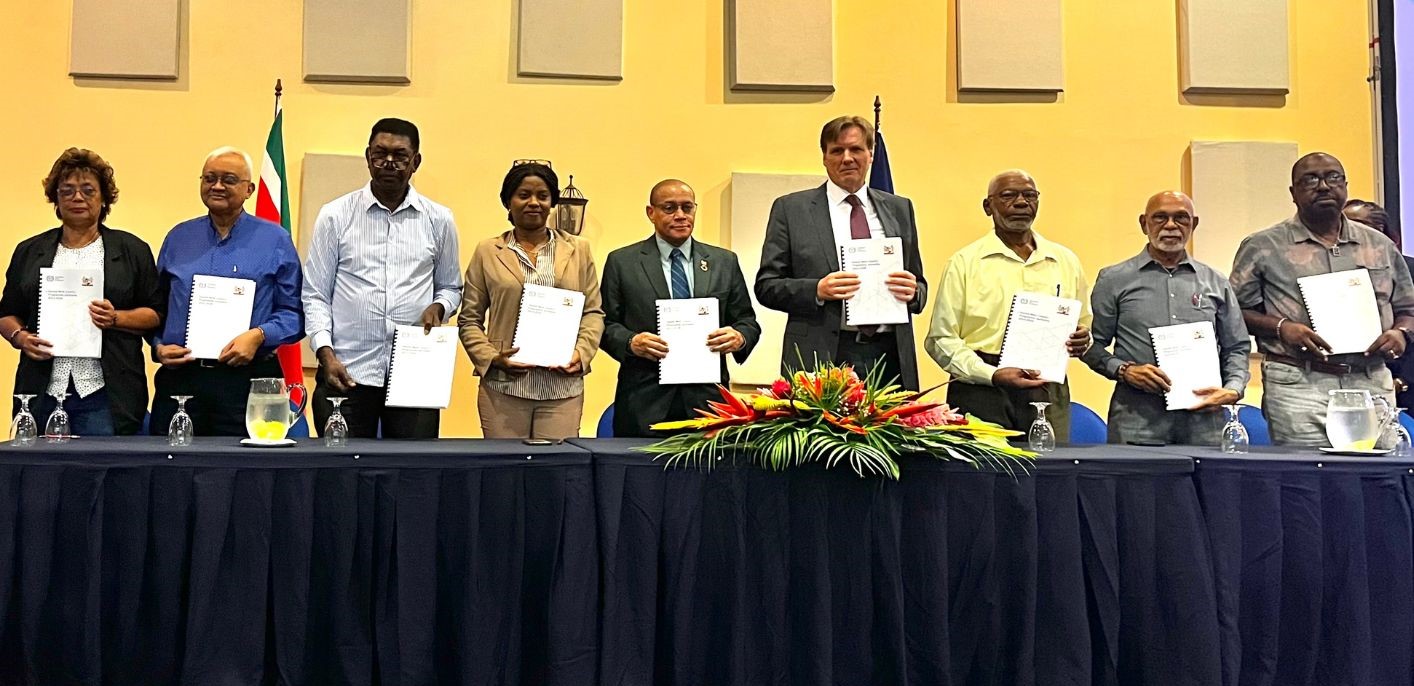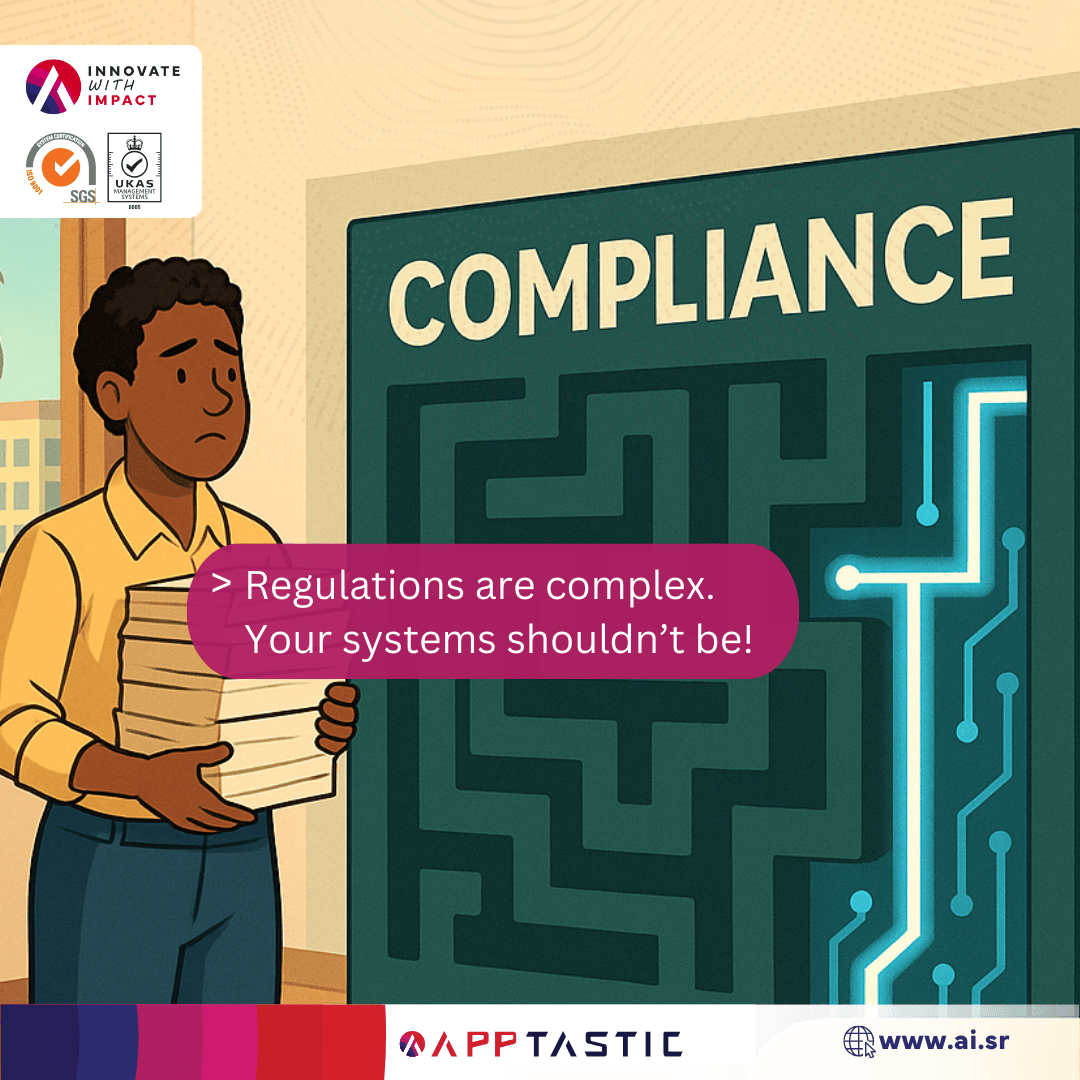The VSB has committed itself to contribute to the sustainable development goals and by extension also to this 3th descent work country program.
As a country we are going through some tough economic en social challenges, which increases the pressure to survive on levels of society. Workers Employers labor organizations and employers organizations, NGO’s and the government are even more opposed to each other
In these challenging days there is an increasing tendency to choose for short term. adhoc solutions, that in the end will have limited to zero benefit for either our human capital ( laborer’s), the employers and our society as a whole.
This third descent work country program is not a quick fix. With the input of a variety of stakeholders, the technical support of the ILO the facilitation & monitoring of the ministry of labour, this program has meticulously set out a set of priorities, inputs assumptions and performance indicators to foster descent work and enhance sustainable business development. It sets out a clear tripartite management approach, meaning equal ownership clear roles and responsibilities for all parties.
Another Important aspect of this program is, is that is not a standalone, it has clear linkages with our national development plan and must be inline with the recovery plan.
About the programme:
| Priorities | Outcomes |
| 1. Jobs, productivity, and sustainable growth. Environmentally sustainable and diversified economic growth and sustainable enterprise development expands the offer of decent employment | 1.1. Development of environmentally sustainable ‘green’ sectors and value chains advances Suriname’s transition to a more diversified and resilient economy that supports new ‘green jobs’
1.2. Enhanced enterprise productivity and competitiveness support decent jobs and sustainable enterprise development. 1.3. More resilient and productive MSMEs and cooperatives support and sustain decent employment and livelihoods for inclusive economic growth. |
| 2. Livelihoods, human capital, and a skilled workforce. Workforce skills development, employment services, and a coherent and universal social protection system ensure a secure livelihood for all Surinamese | 2.1. Education and training programs supply skills aligned to current and future labour market needs to support increased employment and entrepreneurship.
2.2. An integrated employment activation strategy creates and supports a viable pathway for all jobseekers to transition into decent employment. 2.3. The national social protection system is enhanced to progressively provide coverage for all and ensure long-term sustainability. |
| 3. Labour market governance and labour rights. Improved labour market governance and institutions ensure the realisation of decent work and fundamental rights at work | 3.1. The national legal and policy framework is strengthened to ensure the full application and promotion of international labour standards.
3.2. Labour administration and labour judicial systems are more effective in preventing and detecting violations of labour law and resolving disputes. 3.3. Functioning labour market information and analysis system enables evidence-based policymaking on employment, productivity, and skills. |
Cross-cutting aims
Additionally, three cross-cutting aims are integrated across all three priorities.
| Strengthen social dialogue | Social dialogue is one of the four pillars of Decent Work and an integral element of this DWCP. Rather than a stand-alone outcome, social dialogue is integrated across all Priorities as an instrument for achieving DWCP objectives and advancing the Decent Work Agenda. This approach intentionally shifts the focus from social dialogue as an end in itself onto the desired results of social dialogue, including the institutional, procedural, and constituent capacity needs to facilitate social dialogue as an effective driver of decent work. |
| Support underserved and vulnerable groups | The DWCP aims to integrate consideration of underserved groups across all Priorities so that the DWCP promotes inclusive social and economic development. In practice, this means going beyond initiatives that target a specific group to ensure all DWCP outcomes incorporate measures to expand benefits and opportunities to all segments of society. |
| Promote the transition from the informal to the formal economy | The DWCP aims to advance decent work by supporting the transition from the informal to the formal economy (in line with ILO R204). Transition to the formal economy requires an integrated strategy to address multiple and diverse barriers to formalisation while ensuring adequate protection for vulnerable workers in informal work. The DWCP can contribute to this transition by promoting decent job creation in the formal economy, strengthening the protection of workers’ fundamental rights, expanding access to social protection, and promoting social dialogue inclusive of informal workers. |
VSB to emphasizes, that in our efforts to implement descent work country development program, we must simultaneously work on the conditions to enhance the ease of doing business and therefore positively stimulate the transition businesses from the informal to the formal economy. This holistic program requires good governance structural dialogue and accountability of all parties.
The Suriname trade and industry association will play its part this third descent work country program together with the labour union, her sister organizations, the ministry labour , the NGO’s and the ILO.
The Suriname Decent Work Country Program (DWCP) for 2023-2026 sets out the common commitment of the Government of Suriname, workers’ and employers’ organisations, and the International Labour Organization (ILO) to promote Decent Work. The ILO has a longstanding program of cooperation with its constituents in Suriname, including the implementation of two previous DWCPs, between 2014-2016 and 2019-2022. Consistent with the previous programs, the DWCP for 2023-2026 establishes a firm commitment between all partners to ensure that Decent Work is at the heart of national development in Suriname as the country seeks to advance its recovery from the Covid-19 pandemic.
During the period 2023-2026, the ILO will work in close partnership with the Government of Suriname and the social partners to address national decent work challenges. The ILO’s approach reflects the development of a ‘new generation’ of DWCPs, seeking to align more closely to both national and international development goals and leverage partnerships to achieve real and meaningful change. Activities and results identified in the DWCP are based on clear theories of change, developed through consultation with Surinamese constituents.
The 2030 Agenda for Sustainable Development, with its commitment to the human rights agenda and the core programming principle to leave no one behind, is central to the third Suriname DWCP. The priorities of the DWCP are based on Suriname’s national development priorities, as articulated in the Multi-Annual Development Plan of the Republic of Suriname (NDP), 2022-2026, which in turn align with the United Nation’s Sustainable Development Goals (SDGs). The DWCP also aims to continue and build on the achievements and areas of work carried out under the previous DWCP (2019-2022).
The DWCP is also designed to integrate and find synergies with the United Nations Multi-Country Sustainable Development Cooperation Framework (MSDCF), 2022-2026, and the accompanying Country Implementation Plan (CIP) for Suriname. The MSDCF guides the activities and priorities of the UN system in the Dutch- and English-speaking Caribbean.
Decent Work Country Programs are the main vehicle for delivery of ILO support to countries. They have two main objectives: to promote decent work and its normative framework as a key component of national development strategies; to organise ILO knowledge, instruments, advocacy and cooperation at the service of tripartite constituents in a results-based framework to advance the decent work agenda.


